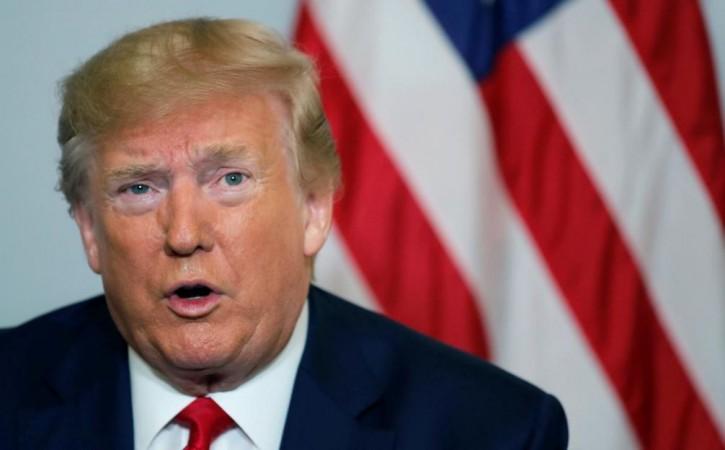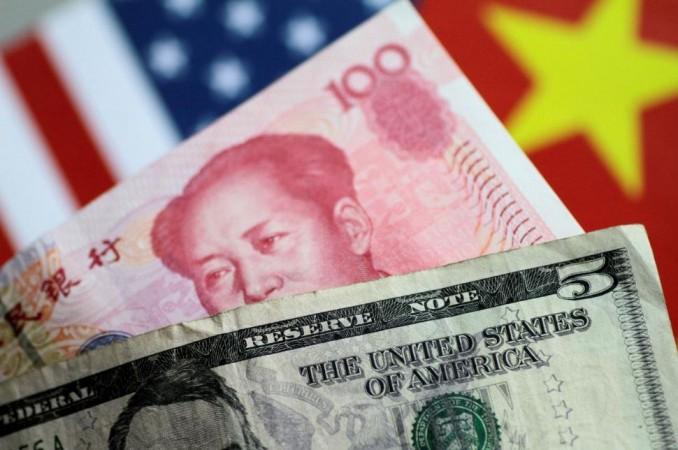
Hours after Chinese Vice Premier Liu He said Beijing is willing to resolve the trade dispute through talks, US President Donald Trump said he welcomed China's request for a "calm" resolution.
Trump, who is at the G-7 meeting in France's Biarritz, called Chinese President Xi Jinping a "great leader" and said China contacted officials to re-start trade talks between the two countries.
Liu He, who has been leading the trade talks with the US, had earlier said trade tensions between the two countries are not conducive to China, the US and the interests of people all over the world.
"We are willing to solve the problem through consultation and cooperation with a calm attitude, and resolutely oppose the escalation of the trade war," said Liu He, who is the top economic advisor to Chinese President Xi Jinping.
He also welcomed investors from around the world, including the US, to operate in China. "We will continue to create a good investment environment, protect intellectual property rights, promote the development of smart intelligent industries with our market open, resolutely oppose technological blockades and protectionism, and strive to protect the completeness of the supply chain," the Chinese diplomat said.
The statement comes days after tensions between the two countries peaked as China slammed tariffs on US goods worth $75 billion, including soybeans, automobiles and oil.
Trump announced a retaliatory 5 percent increase in tariff, making the total US duty on Chinese goods worth $550 billion. The current 30 percent tariffs imposition is scheduled to begin from October 1, which also the 70th founding anniversary of the People's Republic of China.

The tense situation between the two countries escalated on Sunday with Donald Trump stating that he regretted not raising the tariffs higher and ordering US companies to find "alternatives", which include closing operations and relocating the production to the US.
The US Secretary of the Treasury, Steven Mnuchin, on the sidelines of the G-7 meeting in France called out Beijing for unfair trade practices and said if China would agree to a fair and balanced relationship "we would sign that deal in a second".
White House economic advisor Larry Kudlow also echoed Mnuchin's statement and welcomed Trump's order of companies to come back to the US.
"Come home to America, we've got the best tax system, we've got the best regulatory system, it's an easy place to make money, the best technology in the world. Come home. That's what the president is saying," Kudlow said.
Global economy ramification
Experts have raised concerns that the ongoing trade war between the two largest economies will likely result in a global recession.
Trump has dismissed the concerns and has said that "our country is doing really well, we had horrible trade deals and I'm straightening them out".
Despite Trump's downplaying of the situation, Chinese currency Renminbi weakened to a new 11-year low on Monday. Stock markets in the Asia-Pacific region also tumbled sharply, following trade tensions that worsened over the weekend.
Australia and New Zealand Banking Group (ANZ) analyst noted that the "fragile negotiations are spiralling out of control".
"The escalation suggests uncertainty will continue to weigh on global trade, industrial production and investment, with no sign of a resolution," Financial Times quoted the analyst as saying.
Chinese media slams the US
Chinese state media have slammed Washington's aggressive stance on the trade issue and have said that the US will "never be allowed to control China's fate".
Describing the trade war as "an unavoidable trial by fire", an editorial in China Daily said, "The country (China) will emerge stronger."
An editorial in state-owned media outlet Global Times said if the US companies decide to give up the Chinese market, it will be "suicide" for them, especially those from the auto sector.









!['Had denied Housefull franchise as they wanted me to wear a bikini': Tia Bajpai on turning down bold scripts [Exclusive]](https://data1.ibtimes.co.in/en/full/806605/had-denied-housefull-franchise-they-wanted-me-wear-bikini-tia-bajpai-turning-down-bold.png?w=220&h=138)



